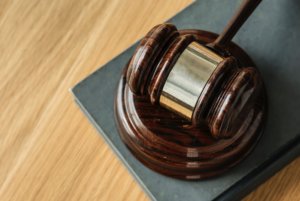“The recordings are the best, unadulterated evidence of Ripple’s and the Individual Defendants’ contemporaneous views, treatment, and marketing of XRP during the relevant time period.”

The Securities and Exchange Commission has requested a conference and order compelling Ripple to search and produce video and audio-taped recordings of the firm’s meetings that include the individual defendants Garlinghouse and Larsen as well as other key employees speaking on topics relevant to disputes in the lawsuit.
The plaintiff accused Ripple of having a flawed search methodology that excluded highly probative evidence from its belated production of responsive recordings until the SEC raised these issues with Ripple.
“Ripple agreed to “search all recorded meetings by the custodians of such meetings, meeting name, and other criteria.” But the SEC recently learned that Ripple’s search is not reasonably designed to identify responsive documents for at least two reasons”, said the letter.
“First, Ripple’s definition of “custodian” includes the electronic location in which a recorded meeting was stored – for example, “Ripple videoconference” is the purported “custodian” for many recordings that Ripple has refused to search — rather than the relevant employees who spoke at or attended the meeting.
“Second, where the file name of the recorded meeting provides no information as to whether responsive topics were addressed at the meeting — for example, “Ripple meeting” — Ripple has refused to search the recording’s content”.
“Ripple has insisted that the SEC — which has no access to the recordings or even to Ripple’s list of the recordings, which Ripple has also refused to produce — must identify the specific additional recordings it seeks”.
For those reasons, the SEC asked the Court to reject Ripple’s attempt to shift its own document production obligations to the SEC.
“The recordings are the best, unadulterated evidence of Ripple’s and the Individual Defendants’ contemporaneous views, treatment, and marketing of XRP during the relevant time period. Indeed, the recordings Ripple has produced so far are highly probative of the key disputes in this case.
“Ripple should be required to conduct a reasonable search to identify additional responsive recordings of meetings at which the agreed-upon custodians spoke, regardless of the name of the electronic folder in which such recordings are stored or the titles of their file names.”
The SEC wants to secure evidence that the individual defendants and key employees were aware that XRP could be considered a security as they marketed the digital asset as an investment contract. This is the agency’s strongest case against Ripple.
The plaintiff, however, is responsible for regulatory clarity and it is known that Ripple executives tried to learn the agency’s position on the matter to no avail.
In addition, there are most likely to be issues with the SEC’s security argument given that the technology had been fully developed prior to the sale of XRP.
The SEC has also complained to the Court about Ripple’s close to 30,000 requests for admission. The plaintiff requested a protective order relieving the SEC of any obligation to respond to the 29,947 requests.
The SEC informed the Court that it spent more than 100 hours responding to 254 requests. At that rate, the Plaintiff would need over 473 days to complete the task.
There’s more on Ripple:
Ripple pushes SEC up against the wall: ‘If personal opinions, then no privilege”
Ripple buries SEC in paperwork in XRP lawsuit: Nearly 30,000 requests
Ripple running out of time as BIS ‘conspires’ to end cryptos’ threat to financial system
Ripple responds to Senator Toomey on XRP, the SEC, and how to do better
SEC v. Ripple: XRP’s utility and currency value backed by former U.S. Treasurer
